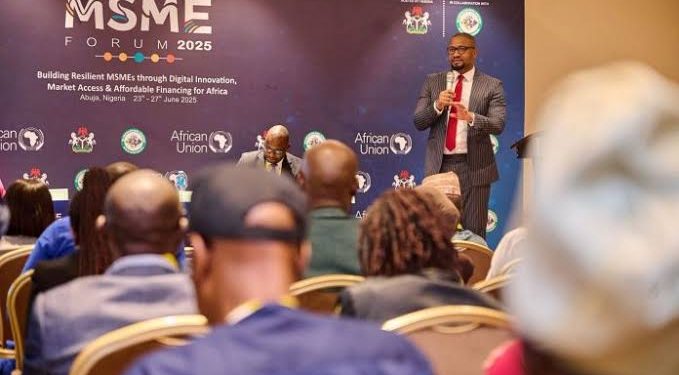At a special session of the ongoing African Union (AU) MSME Forum, the Small and Medium Enterprises Development Agency of Nigeria (SMEDAN) announced that it has begun the process of renewing the country’s National MSME Policy. The renewal aims to create a more inclusive and responsive framework to reflect Nigeria’s current economic realities and future opportunities.
The announcement was made through a statement on SMEDAN’s official X (formerly Twitter) page, where the Director General of the agency highlighted key progress achieved under the current policy, which is due for renewal later this year. He emphasised that the update will follow a co-creation approach, involving close collaboration with both public and private sector stakeholders.
According to him, the new policy will take into account major shifts that have occurred since the last update. These include the implementation of the African Continental Free Trade Area (AfCFTA), the rapid acceleration of digital technologies following the COVID-19 pandemic, changes in global supply chains, and ongoing national economic reforms. By integrating these dynamics, the renewed policy is expected to better equip Nigerian MSMEs to compete regionally and globally.
SMEDAN has already begun working with local actors and international development partners to shape the policy renewal. This collaborative process is aimed at ensuring that the updated framework addresses the practical needs of MSMEs, from financing and market access to digital adoption and policy support.
This initiative signals a new phase in Nigeria’s effort to build a resilient and inclusive MSME ecosystem. As the backbone of the national economy, small and medium enterprises play a crucial role in job creation, poverty reduction, and innovation. By leading the policy renewal process, SMEDAN is positioning itself at the heart of Nigeria’s drive for sustainable development and inclusive economic growth.
As work progresses, further consultations and updates are expected to be shared with stakeholders and the public, highlighting the agency’s commitment to openness and shared ownership of the policy direction.










